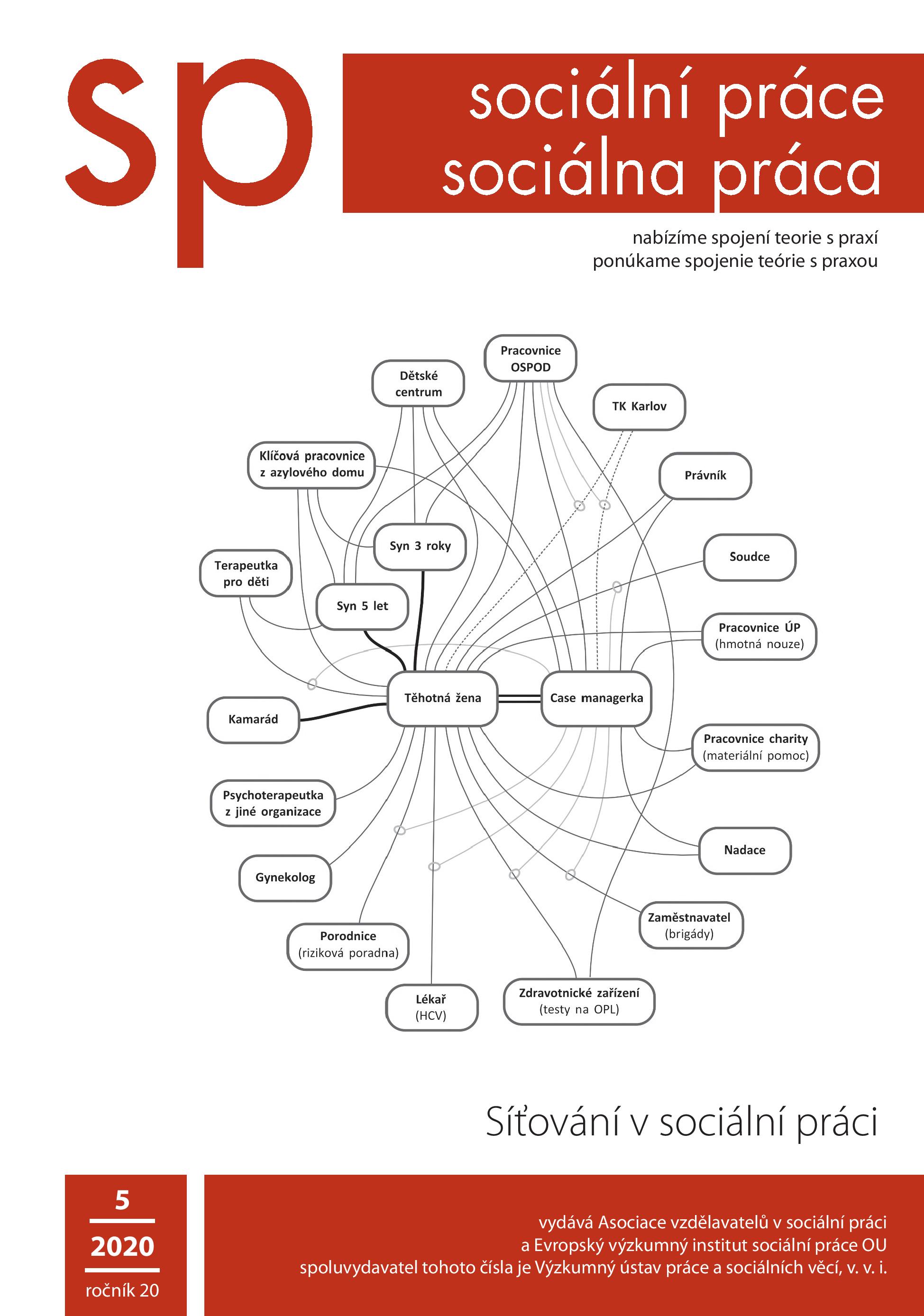
Z redakce
Nové předplatné pro rok 2021 Zemřel doc. PhDr. Pavel Hartl Advent plný dárků a překvapení YouTube kanál časopisu Sekce „Koronavirus v sociální práci“ opět spuštěna Vyšlo číslo 5/2020 „Síťování v sociální práci“
Přednášky on-line

Volná místa
Sociální pracovník (Moravská Třebová) Sociální pracovník / pracovnice (Nymburk) Vedoucí odd. kurátorů pro mládež (Praha) Kontaktní pracovník / pracovnice (Pardubice) Sociální pracovník (Hřebeč – Kladno) Odborný sociální pracovník (Liberec)
Čísla
Archiv čísel » 2019/4 - ERIS Journal - Summer 2019 »
Energy Transition and Environmental Justice: Effects on Vulnerable Groups and Implications for Social Work
Anna Suppa, Isabelle Steiner, Peter Streckeisen
Medailon autora:
Abstrakt:
OBJECTIVES: The submitted paper focuses on the energy transition and its social and economic effects on vulnerable groups. It raws on an empirical study on behalf of the Swiss Federal Housing Office. This contribution insists on the necessity to overcome he gap between energy policy, social policy, and housing policy. THEORETICAL BASE: The paper refers to intersectionality theory. It elaborates on the notion of energy poverty and takes into account research on environmental justice and environmentalism of the poor. METHODS: A mixed research approach was chosen, combining qualitative and quantitative methods: exploratory literature review and policy analysis; a quantitative survey among 74 experts; qualitative interviews with 10 vulnerable households and with 5 experts; and expert woprkshops. OUTCOMES: The chapter on empirical findings addresses the following aspects: impacts of energy poverty on the overall quality of life; problems due to deficient infrastructure and energy-inefficient housing equipment; discriminatory structures on the housing market; and services offered to persons affected by energy poverty. SOCIAL WORK IMPLICATIONS: The article concludes that a green social work mandate is needed in order to align the energy transition with environmental justice. Recommendations are given regarding energy policy, housing market, social assistance, and services to households affected by energy poverty.
Klíčová slova:
energy transition, energy poverty, housing, green social work mandate, intersectionality
s. 32 - 47
Podobné články
 More Alike Than We Think? Frames and Practice of Social Work with Families in the UK and Germany
More Alike Than We Think? Frames and Practice of Social Work with Families in the UK and Germany Emancipatory, Relationship-Based and Deliberative Collective Action: The Power of the Small Group in Shifting from Adversity to Hope, Activism and Development
Emancipatory, Relationship-Based and Deliberative Collective Action: The Power of the Small Group in Shifting from Adversity to Hope, Activism and Development Emerging Models of Social Work Accompanying Housing, or How Czech Social Workers Treat Homelessness in Families with Children, while Having No Legal Support
Emerging Models of Social Work Accompanying Housing, or How Czech Social Workers Treat Homelessness in Families with Children, while Having No Legal Support Preparing Young People for Leaving Children’s Homes
Preparing Young People for Leaving Children’s Homes Social Work Practice of Hospital Social Workers under the Structural Adjustment Program in Greece: Social Workers Protecting the Right to Health Care within the Context of Neoliberalism
Social Work Practice of Hospital Social Workers under the Structural Adjustment Program in Greece: Social Workers Protecting the Right to Health Care within the Context of Neoliberalism

Vyhledávání



Debata
Co si myslíte o novém koaličním návrhu na zálohované výživné?
Poslední komentáře:
Nenalezen žádný komentář.Ediční plán
6/2020 – Evaluace v sociální práci 1/2021 – ERIS Journal - Winter 2021 - Forced Migration and Minority Groups 2/2021 – Raná péče a sociální práce 3/2021 – Metody sociální práce 4/2021 – ERIS Journal - Summer 2021 - Histories of social work













